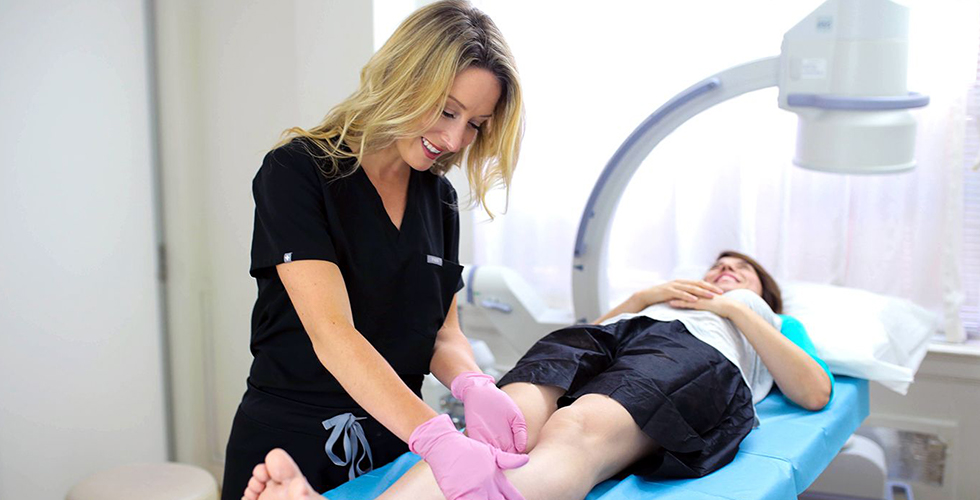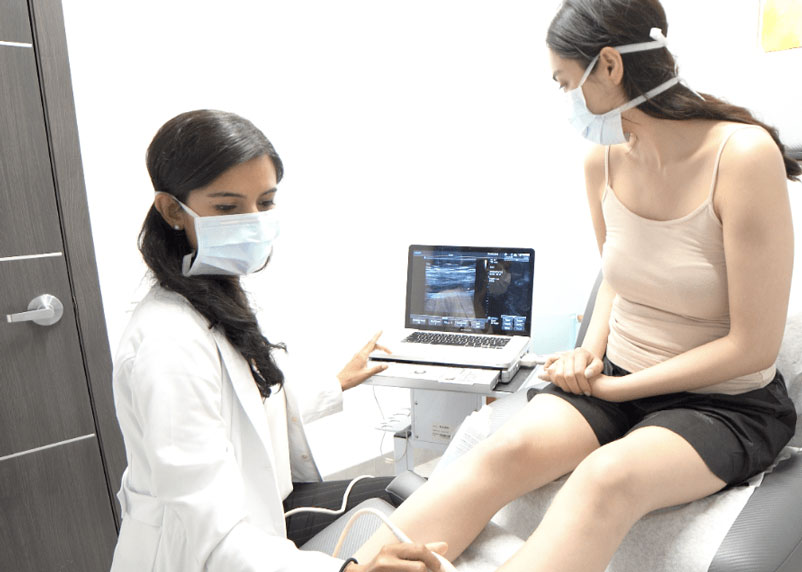You don’t need surgery for varicose veins
If you have varicose veins, you may be wondering if you need surgery to get rid of them. The good news is that there are minimally invasive vein treatments that can help you avoid surgery and the associated pain and discomfort.
The valves in the veins keep blood flowing in the right direction. When they don’t work properly, blood can flow backward and pool in the veins. This can cause the veins to enlarge, which can lead to pain and discomfort. This medical condition is known as chronic venous insufficiency, and it’s responsible for most of your vein problems, including spider veins and varicose veins.

There are several minimally invasive treatment options that can help improve the function of the valves and improve blood flow. These include endovenous laser treatment, radiofrequency ablation, and VenaSeal. Compression stockings can also help to relieve pain and discomfort by improving blood flow and preventing pooling, but they only provide temporary relief.
If you have varicose veins or other signs and symptoms of chronic venous insufficiency, you must contact a reliable board-certified vein doctor to explore your minimally invasive treatment options. Lucky for you, Vein Treatment Clinic is a group of state-of-the-art vein treatment clinics with board-certified and Harvard-trained vein doctors in New Jersey, Long Island, New York City, Maryland, and California.

If you’re in or around the DC Metro Area, you can find our vein treatment clinic at 10215 Fernwood Rd, Suite 301, Bethesda, Maryland. Similarly, you can visit your nearest vein treatment clinic to explore your minimally invasive treatment options. Our vein doctors always diagnose and treat the root cause of varicose veins using non-surgical options, ensuring reliable and long-lasting results without complications or downtime.
Please schedule an appointment to explore your minimally invasive treatment options.
The best conservative solutions to reduce the symptoms of varicose veins:
Wear Compression Stockings
Wearing compression stockings is one of the best conservative solutions to reduce the symptoms of varicose veins. These garments apply gentle pressure to your legs, helping to promote blood flow and prevent pooling. Although they can’t treat underlying vein disease, they can often relieve pain and discomfort associated with varicose veins.
Exercise Regularly
Regular exercise is important for overall health, but it can also help reduce the symptoms of varicose veins. Exercise helps improve circulation and can prevent blood from pooling in the veins. Pooling of blood in the veins is a major cause of varicose veins, so anything that helps reduce it can also reduce symptoms.
Elevate Your Legs
When you are sitting down, make sure to elevate your legs. This will help reduce the amount of blood that pools in your veins. You can do this by using a footrest or stool, or by simply putting a pillow under your feet.
Don’t Sit or Stand Still
Prolonged sitting or standing can cause blood to pool in your veins and worsen varicose veins. If you have a sedentary job, make sure to get up and move around every few hours. And if you are standing for long periods, try to move your feet around often to keep the blood flowing.
In general, anything that helps improve circulation can also help reduce the symptoms of varicose veins. By following these conservative measures, you can help keep your symptoms under control and improve your quality of life. But you still need minimally invasive spider vein and varicose vein treatments to address the root cause of your problems.
The best minimally invasive treatment options for varicose veins:
Radiofrequency Ablation
Radiofrequency ablation (RFA) is a minimally invasive procedure that uses radiofrequency energy to heat and destroy abnormal tissue, including veins. RFA is an effective treatment for chronic venous insufficiency (CVI), a condition in which the veins are not able to efficiently transport blood from the legs back to the heart.
RFA works by delivering radiofrequency energy to the vein, which heats and damages the vein wall. This causes the vein to collapse and seal shut. Over time, the collapsed vein is gradually replaced with scar tissue, and blood is rerouted to healthy veins. It is a relatively quick procedure, and most patients experience little to no discomfort. Recovery is quick, and patients can usually return to their normal activities immediately.
Endovenous Laser Ablation
Endovenous laser ablation is a minimally-invasive, FDA-approved treatment for chronic venous insufficiency (CVI), which is the underlying cause of varicose veins. During the procedure, a thin laser fiber is inserted into the diseased vein through a small incision in the skin. The laser emits energy that heats up the vein and causes it to collapse and close. Once the vein is closed, blood is redirected to healthier veins. This treatment is performed under local anesthesia in an outpatient setting and takes about one hour to complete.
VenaSeal
VenaSeal is an FDA-approved medical device that is used to treat venous insufficiency, a condition in which veins are unable to properly circulate blood. The device is inserted into the affected vein through a small incision in the skin. Once in place, the device seals off the vein with a medical adhesive. This process allows blood to flow through healthier veins, and ultimately improves circulation.
Ambulatory Phlebectomy
Ambulatory phlebectomy is a procedure used to remove varicose veins. The surgeon will make a small incision in the skin over the vein. Through this incision, the surgeon will insert a special tool called a phlebectomy hook. The hook is then used to pull the vein out through the incision. This process is repeated until all of the diseased veins have been removed.
There are several benefits to this type of surgery. First, it is less invasive than traditional surgery, so there is less risk of complications. Second, it is an outpatient procedure, so the patient can go home the same day. Third, it is a relatively quick procedure, so the recovery time is shorter than with traditional surgery.
Please contact your board-certified vein doctors to explore your minimally invasive treatment options for varicose veins and underlying chronic venous insufficiency.









